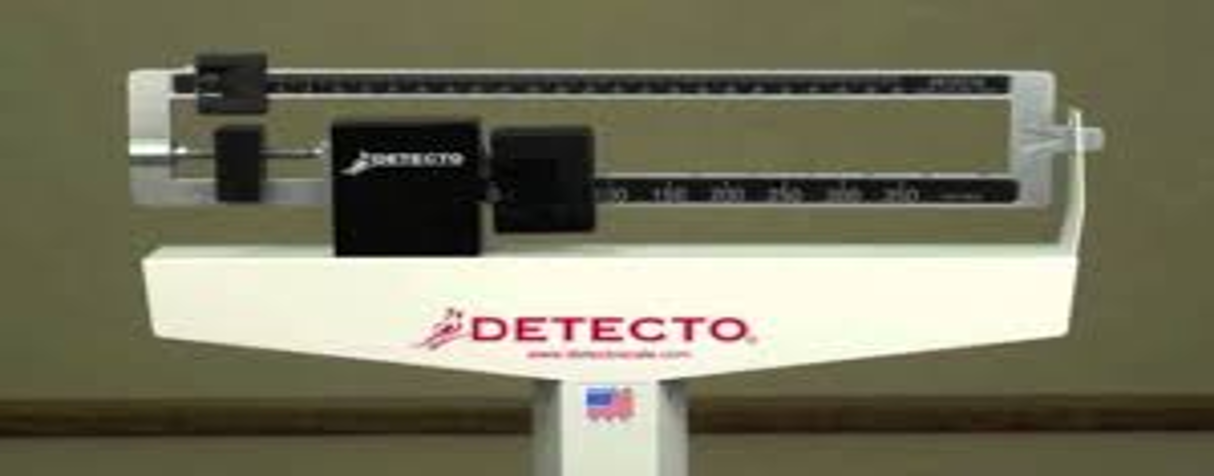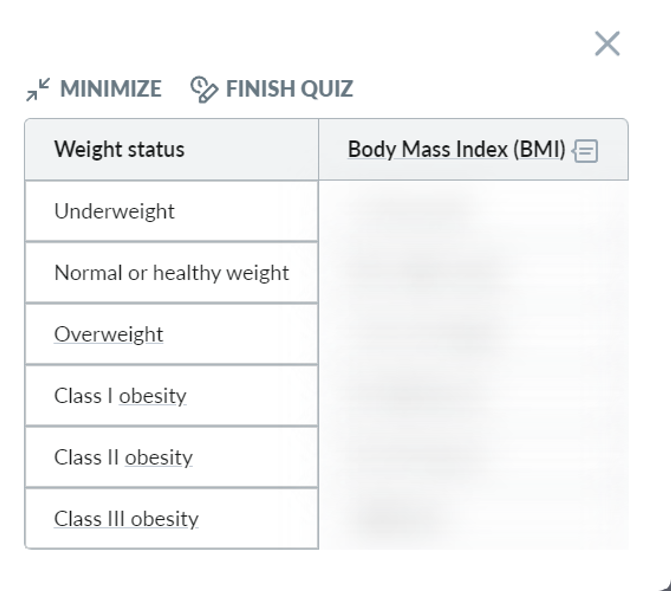Skill
Body Weight
Monitor treatment response and disease progression in:
- Heart disease
- Renal disease
- Liver disease Assess the nutritional status of the patient
Note that when monitoring in-patient body weight, the weight of patient vary during the day, so it is better to weigh the patient the same time each day and preferably with the same cloths (if possible)
 Procedure
Procedure
- Explain procedure to the patient and take permission
- Remove shoes, heavy objects and jacket
- Balance the scale at zero( 0)level
- Allow patient to climb the scale
- On the weighing scale, balance scale while patient is on it
- Read the patient’s weight from the weighing scale and record reading
- Tell the patient their reading and thank him
Height
Indications
- To assess the growth in children
- To assess the nutritional state of patient (calculate the BMI)
Procedure
- The adult weighing scale which has graduated height indices
- Ask the patient to remove shoes, hat
- Adjust scale –by forwarding headpiece up right
- The patient stand facing you with his/her feet parallel, with heels and back of head touching the graduated measurement board /mark
- Allow his/her arms to hang freely in a natural standing manner
- Lower the head piece gently to make contact with the top of the head of the patient
- Take reading and remove the lead piece
- Allow subject to get down, tell him his reading and thank him
Body Mass Index

-
Pt wt 60 kg , height 170 cm (1.7 m)
-
Bmi = 60 / 1.7x1.7=60/2.89 =20.76
-
Underweight < 18.5
-
Healthy Weight 18.5 - 24.9
-
Overweight 25 – 29.9
-
Obese ( Class 1 ) 30 – 34.9
-
Obese ( Class 2 ) 35 – 40
-
Morbid Obesity > 40
Table Quiz
https://next.amboss.com/us/article/HJ0KvS#Z4bddb4371ce536d0b0270ec0582a5d45

SURG
BMI is defined as body weight in kilograms (kg) divided by height in meters squared (kg/m2)
- Underweight: under 18.5 percent
- Normal: 18.5 to 24.9 percent
- Overweight: 25.0 to 29.9
- Obese (class 1): 30.0 and 34.9
- Severe obesity (class 2): 35-39.9
- Morbid obesity (class 3): 40-49.9
Energy requirements in adults
- BMI 20-25= 20-25 kcal/kg/day
- BMI 26-29= 15-17 kcal/kg/day
- Uncomplicated patients= 25 kcal/ kg/ day
- Complicated/ stressed pts. = 30-35 kcal/kg/day